SHARE
Wake and Bake
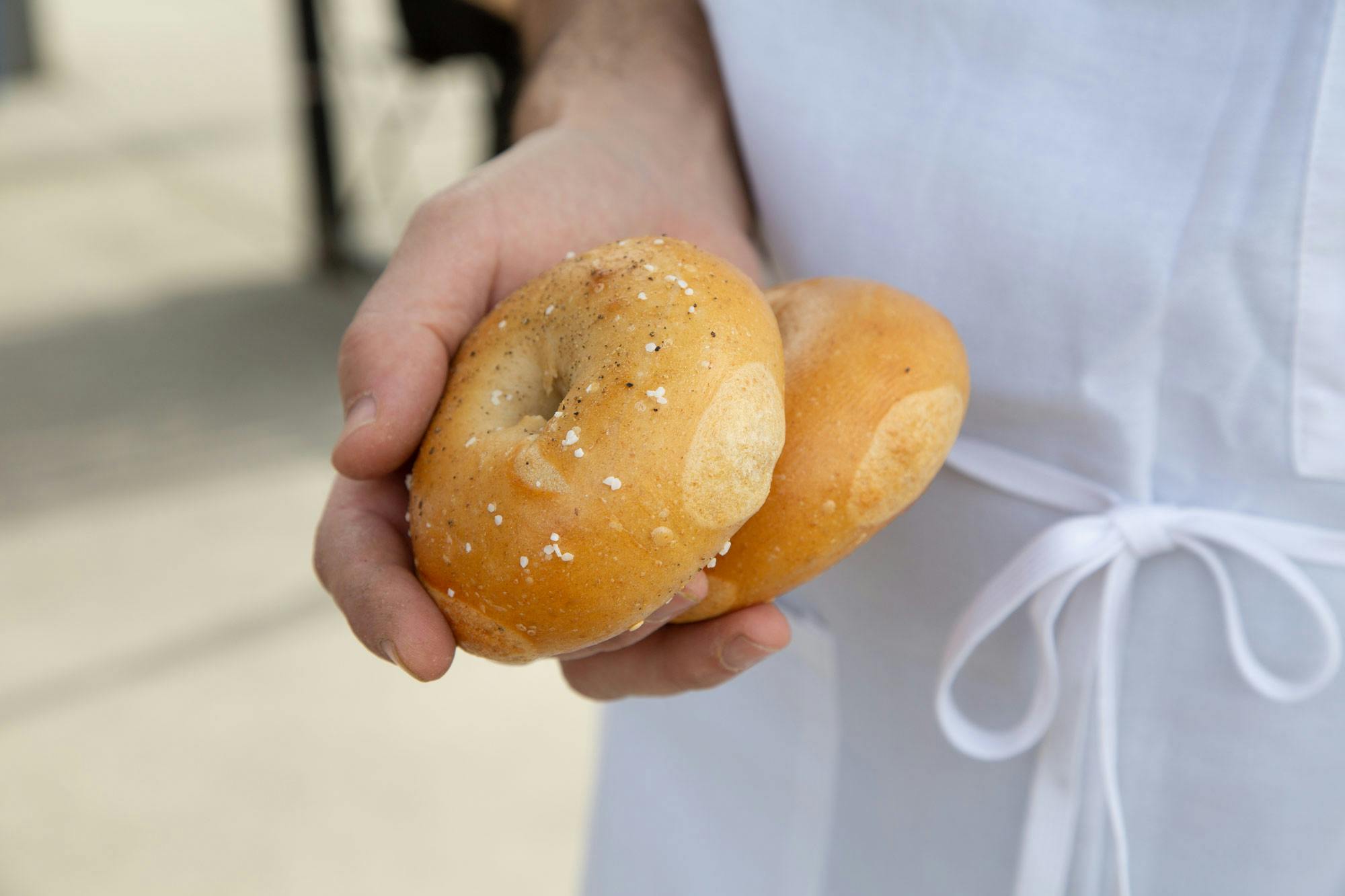
Los Angeles bagel-maker Jason Kaplan has a calling
|
Culinary
photographs by Sara Downing
As a recovering New Yorker by way of Seattle, when I first moved to Los Angeles 14 years ago I was struck by the absence of several staples of my lifestyle. First of course was the lack of good coffee bars — coffee’s third wave hadn’t yet established an outpost (which is what lured me and my barista colleague Kyle Glanville here to correct, on behalf of Chicago-based Intelligentsia). Second, L.A. lacked a strong contemporary baking culture, as though the very concept of bread had been cancelled when Nancy Silverton sold her La Brea baking company back in 2001. You might drive many miles to find a struggling “neighborhood” bakery. Plenty of aging donut shops still proliferated from some glazed and oily past, as common as smog check shops. But proper bagels were nearly impossible to find, in spite of the city’s many legendary Jewish delis.
Fast forward to present day and we find that the diverse and thriving Los Angeles culinary scene has very little missing from its menu and can even claim to give NYC a run for its money when it comes to east coast staples like pizza, bagels, or pastrami on rye.
One bright light in this artisanal renaissance is longtime Yes Plz subscriber and friend Jason Kaplan whose Maury’s Bagels opened a shop in the Silver Lake neighborhood at the beginning of 2019 after becoming a cult hit at regular pop-ups. I first met Jason when he was working at the Venice Beach foodie oasis Gjelina and bringing his great energy to their bustling Gjelina Take Away spot. Jason is one of those “people persons” you meet in the hospitality business who you like immediately and only become more fond of as time goes by.
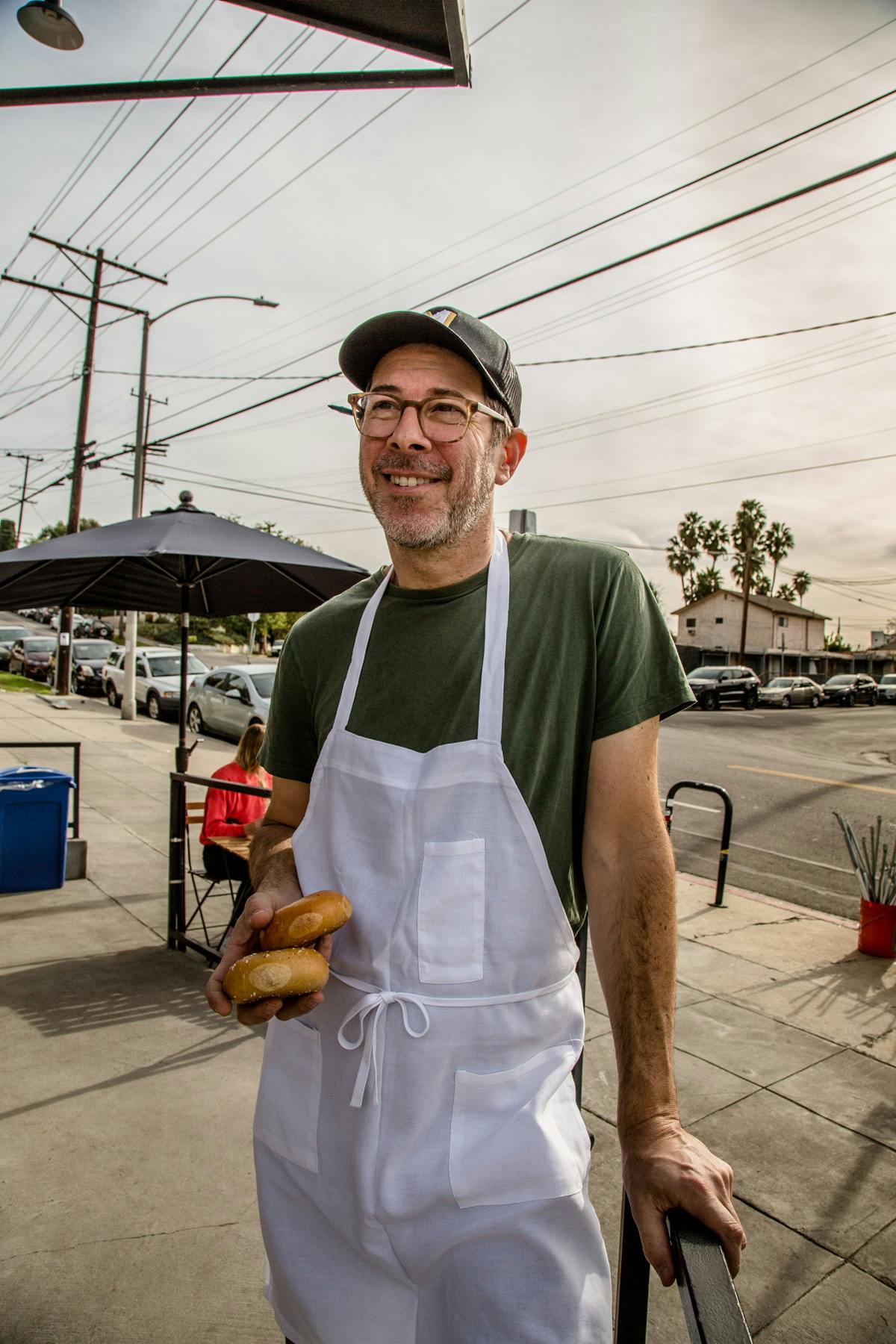
Maury’s (Jason’s middle name) has become a destination, always bustling in spite of being a bit off the beaten path. It sits high on the short list of places I bring friends visiting from out of town. I caught up with Jason on the sidewalk outside his shop to eat a few rugelach and get the story behind the bagels.
What’s your bagel origin story in a nutshell? Did you always know you wanted to do this as a business?
Over a decade ago, a friend suggested that opening a bagel shop in Silver Lake would be a good business, that’s kind of where it started. So we started doing research, the friend lost interest and it kind of lodged in my head as a thing because I was looking for a career change from the film business. So when the opportunity to work at Gjelina came along I thought this might be a good way to see whether or not I have the chops for the restaurant business.
I went to Gjelina with the idea of staying for a year. And then one year turned into four or five. Along the way, I made it known that I was focused on opening a bagel shop, and that if I was going to continue working there I wanted to start bagel testing, so they wrote it into my contract. And eventually the time was right for me to move on and I started looking for spots to open up.
And you ran pop ups for almost two years?
Yeah, the pop ups came along thanks to Ben and Michelle [Hantoot] from Dinosaur Coffee and Zach [Brooks] from Smorgasburg — a good opportunity to see if people liked what I was doing. In the meantime, I was learning how to scale up for larger quantities. With the real estate market being what it is and my concept being kind of challenging, it took a lot longer to find the space than I expected. I bought equipment that I ended up not having enough space for. I wanted to do more of a Montreal-style bake, so I bought a giant oven that’s now sitting in storage. As our Hollywood farmer’s market stand started building momentum, I realized that maybe all I needed was a small place to produce out of, so I took a second look at this location and thought it would work. It didn’t have the things that I wanted, initially, like high traffic and parking. But it had a vibe that I liked.
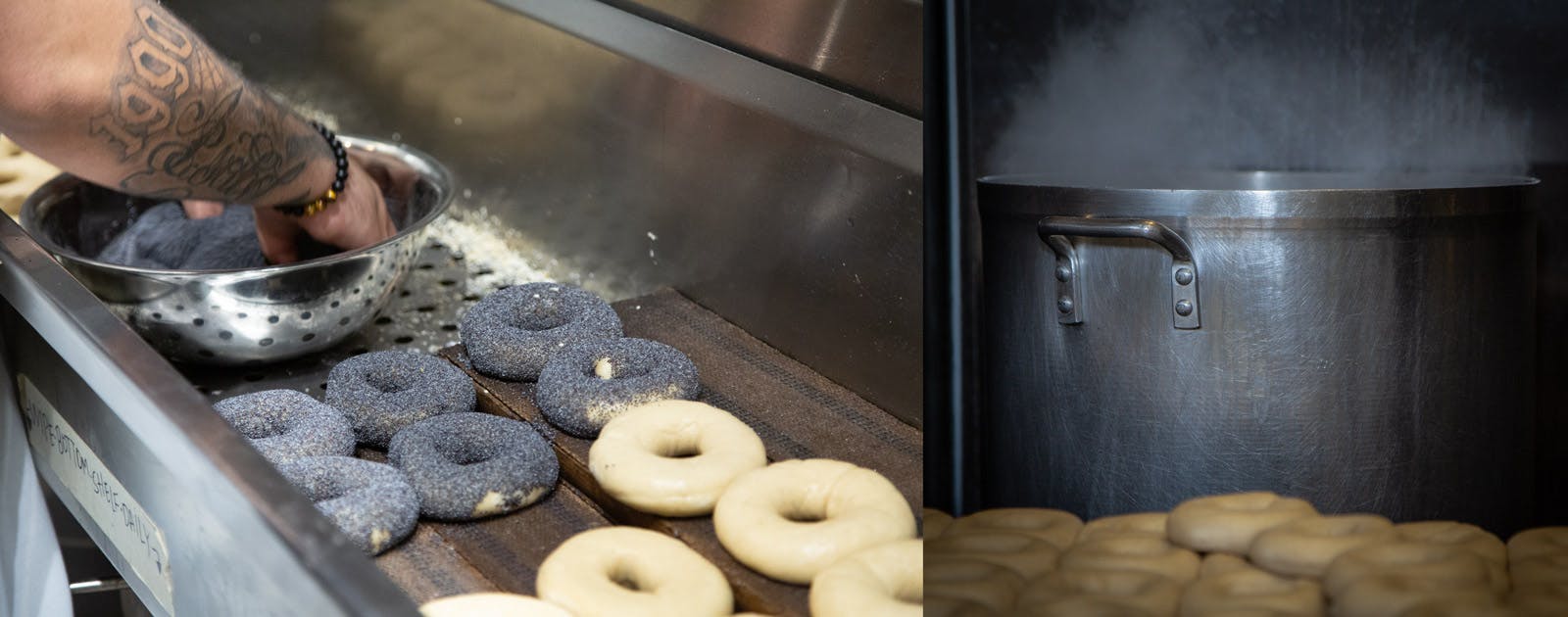
Seems like the neighborhood has come out in force to support you.
I think so. Our unit was was boarded up and being used for storage and so to be able to revive it as a bakery without even having to change the zoning… basically meant that we were adding a service to the neighborhood that had been missing, and we’ve been pretty warmly welcomed by the neighbors. I think part of that is because I tried to try to offer a menu that’s approachable to a wide range of incomes. Some people might laugh at that — but if you want to spend just a few bucks, you can get a bagel and cream cheese and a coffee. And if you’re price insensitive and you want to try a more difficult to source fish, then we’ve got that for you too. But it was important to me to not put a bougie project right in the middle of a mixed income neighborhood.
A bagel’s like a slice of pizza or kind of a working man’s food. So to turn around and sell, like an uncut bagel for seems kind of unconscionable to me, you know. I know they can be hard to make, but you can make money in different ways in this business and you can still make your product affordable to people who are hungry.
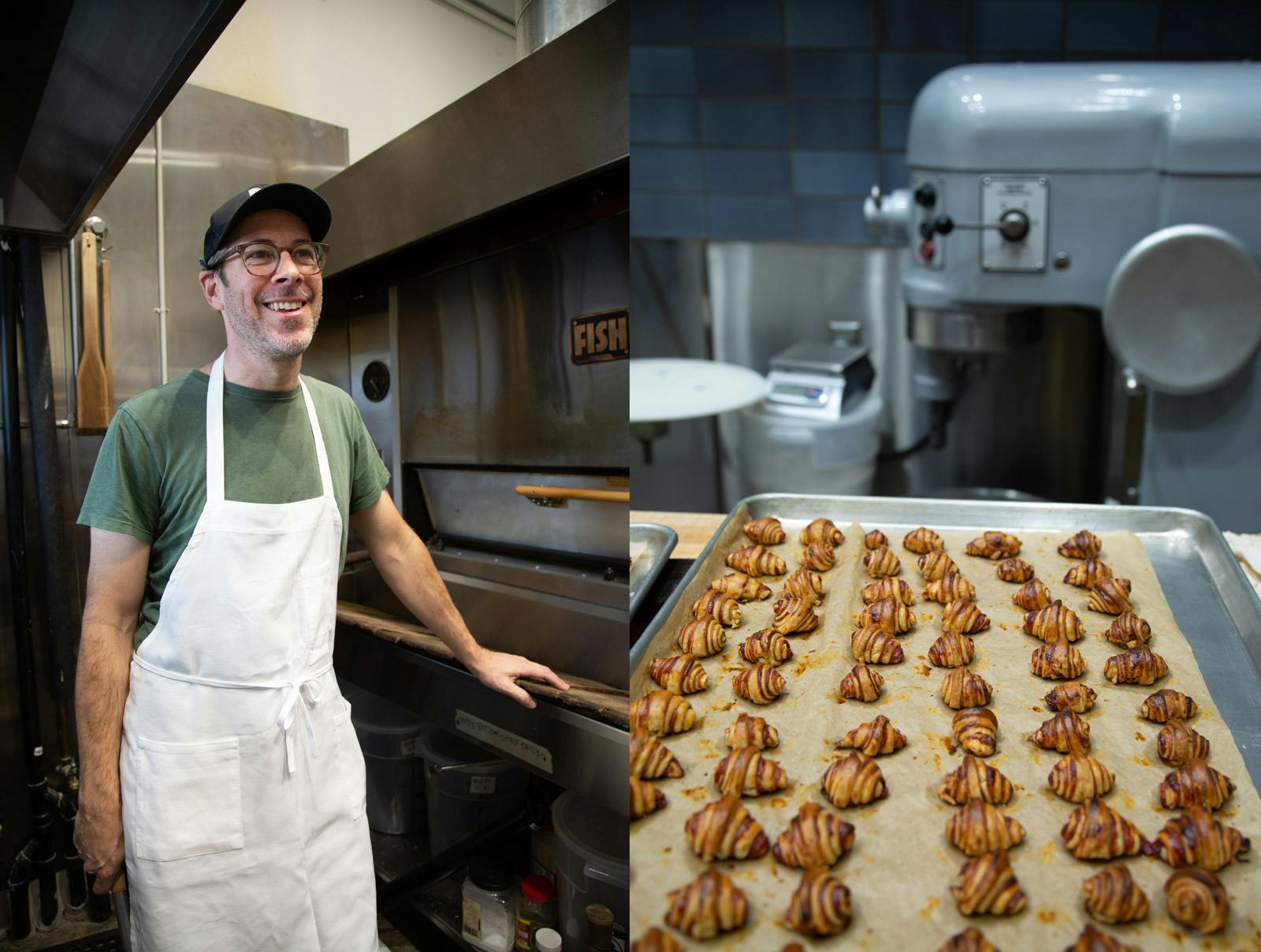
Bread and baking seems to be having a moment in Los Angeles the last few years, in spite of all the low carb diet stuff. What’s your take on why there’s suddenly a new bread boom?
I don’t know for sure — my interest in baking started back when I lived in New York and Jim Lahey’s book, My Bread came out and people started being able to bake high quality boules at home in cast iron pots. And,I think obviously Tartine has led a sort of revolution by publishing their method and recipe and allowing everyone to participate, whether it’s for business or for home. You’re basically talking about bringing a product back to market that hadn’t been available before. If you’re going to compare like the quote unquote “fresh baked bread” that you could get at the supermarket before this happened to what’s available now, it’s night and day. The variety of grains that are available, and the methods that people are using and reviving to bake them, has allowed people to taste bread, kind of almost for the first time. And you know, it’s delicious! I think that deliciousness is what’s spurring it on.
Also the economy is kind of fucked up and weird right now. There are a lot of people who maybe started in one industry, and are finding a place in the restaurant business, like I am. I started in the film business, making sound effects for elephants and whatnot, and now I’m basically spending all my time in a kitchen, behind an oven. But I like it there. Anytime you’re at a party, the party always ends up in the kitchen, there’s a reason for that — it’s fun and you get to eat all the time while you’re working.
As far as the revolution goes, I think there’s just so many different areas to explore, there’s a lot of niches, and bagels just happen to be one. There’s a lot of ways to produce this product and a lot of different versions it can take. A lot of my friends that I’ve made since I started doing this in Los Angeles have come out with what their perfect bagel is, and we’re doing what represents my perfect bagel. And I think there’s room for all of us here because, you know, they’re all good and they’re all tasty.
You’d say there’s still more camaraderie than competition at this point?
I can only speak for myself. I enjoy collaborating with people. And Nick, for example, from Bell’s Bagels and I chat a lot because we like each other personally, we like what each other is doing. We’re both helpful by nature, I think.
There’s always going to be people who spend their time looking at what the competition is doing, and trying to catch up as opposed to doing their own thing. That was something that I learned from Travis [Lett] at Gjelina. In fact, if someone else was doing something, that turned him off to it — that was the best way to get him to not do something was to say — Hey, someone else is doing this.
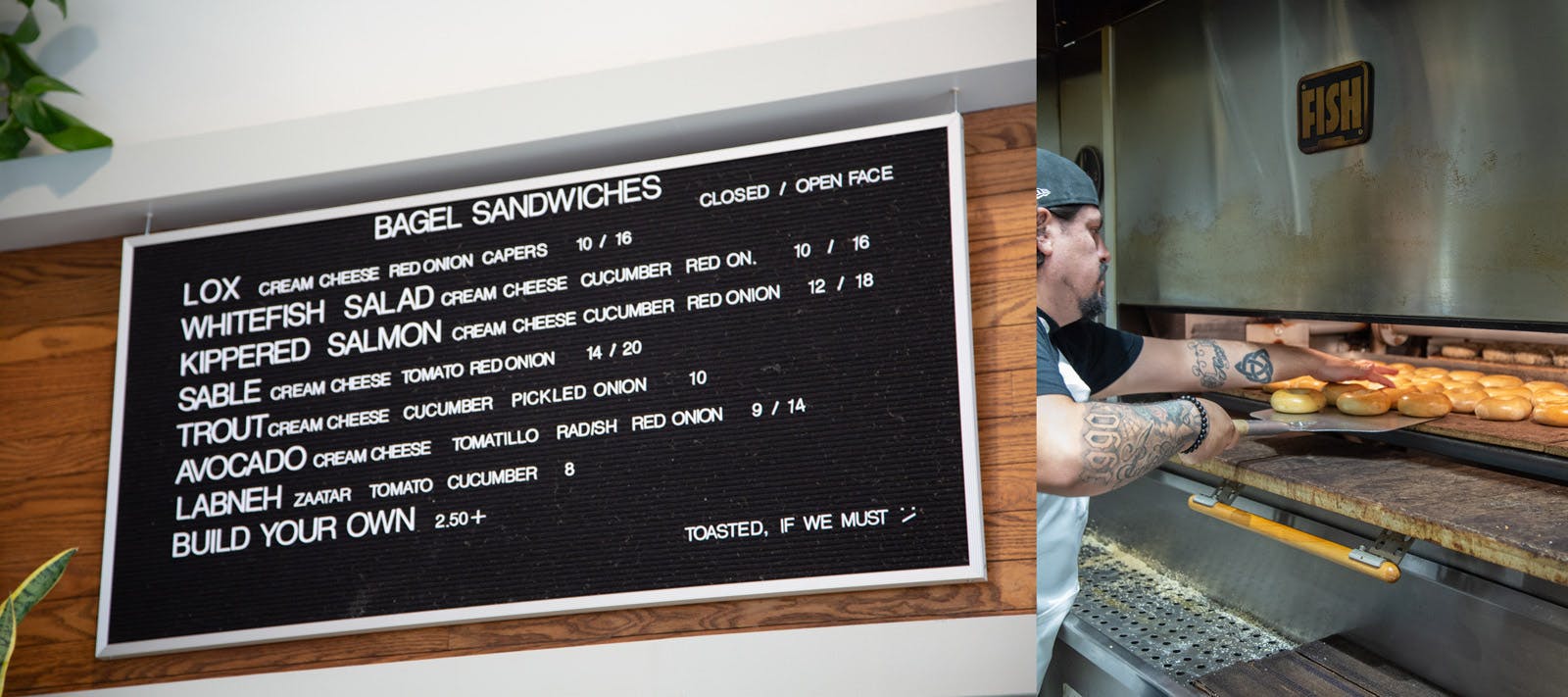
Bagels feel like one of those products that everyone has an opinion on, what their favorite is, who’s the best, or what the platonic ideal is. Has your ideal bagel changed since you started or was there always a vision of what you felt perfection looked like?
When I started baking I think I had an idea in my head of what the perfect bagel was, and I don’t think that I’d ever actually had it — or if I had it had been quite a long time. Bagels in New York have changed over the years to one-upsmanship of making bigger and bigger bagels to the point where they are now, where your bagel either has to have a rainbow in it, or it has to be squashed flat. When you go back to New York now and look for bagels, you have to kind of go into the outer boroughs and Jersey before you’re going to find something truly delicious.
For me, because it’s a dense bread, I was looking for something that wasn’t so big that I couldn’t eat it in one sitting and maybe I could even have two. But at the same time I was looking for something that could stand on its own and wasn’t just a vehicle for cream cheese and lox, that got better as he chewed it — whereas a lot of bread nowadays, you kind of want to spit it out after after a few chews.
Try a cup on us
Order A Sample
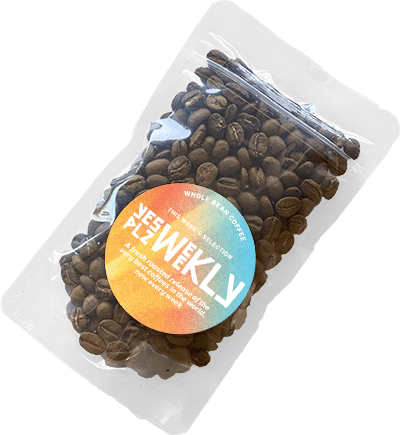
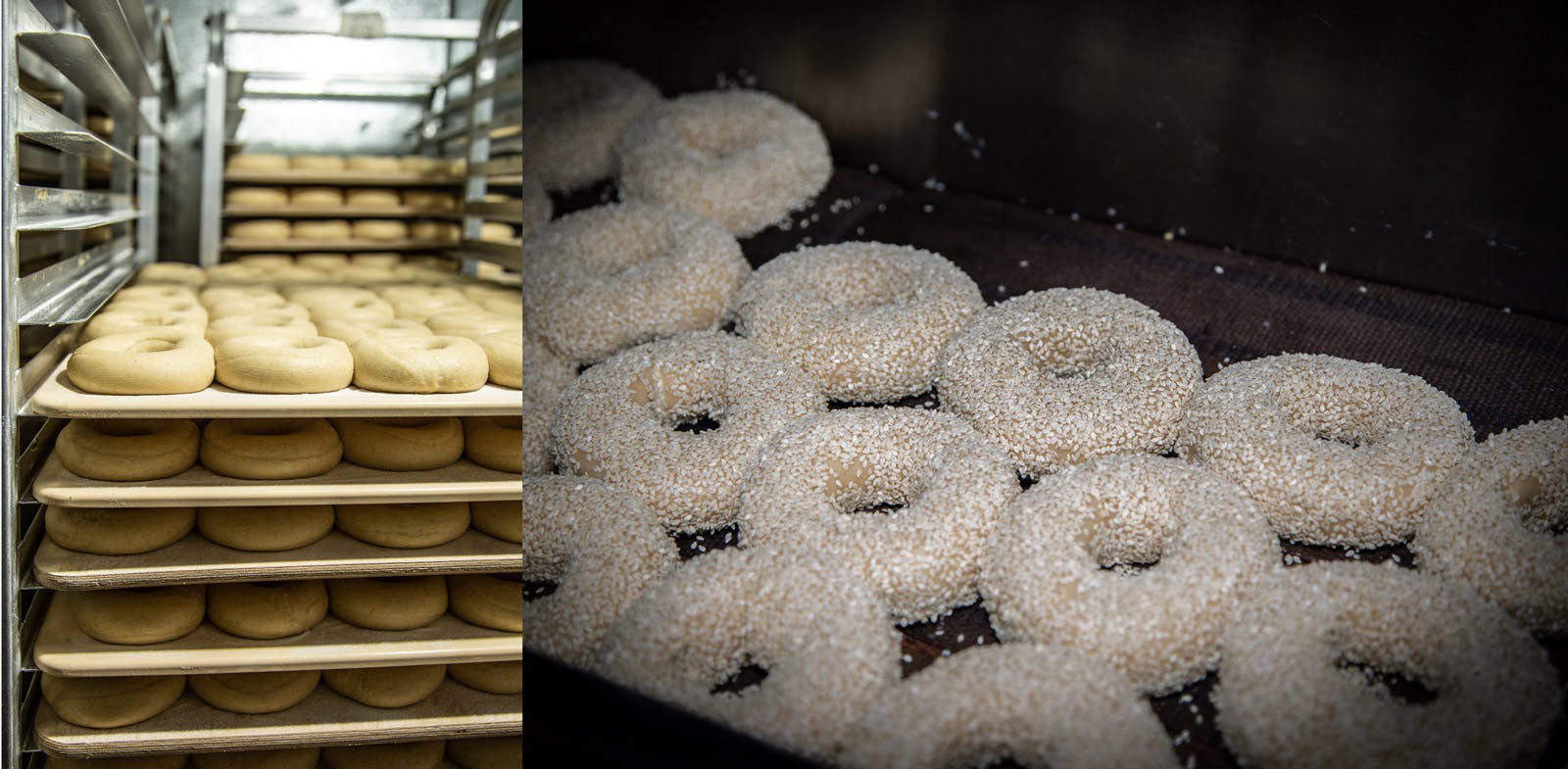
SHARE
